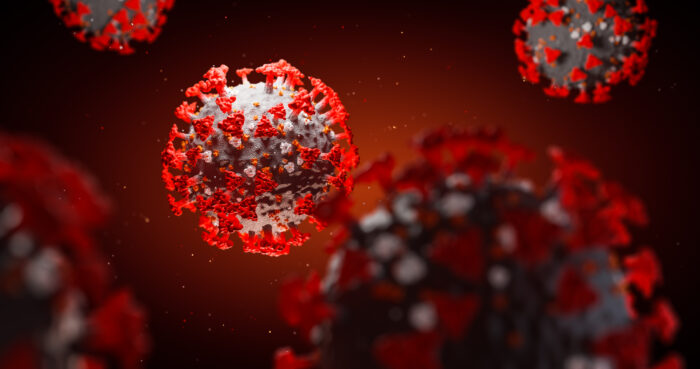
When an FDA advisory committee meets next month to discuss Covid-19 vaccines for young children, they’ll also be able to talk about the merits of a booster shot for this age group. This week, Pfizer and BioNTech released preliminary data from a pivotal study evaluating a third dose in children ranging in age from 6 months to under 5 years old. Results showed a strong immune response and a safety profile that was similar to a placebo.

Behavioral Health, Interoperability and eConsent: Meeting the Demands of CMS Final Rule Compliance
In a webinar on April 16 at 1pm ET, Aneesh Chopra will moderate a discussion with executives from DocuSign, Velatura, and behavioral health providers on eConsent, health information exchange and compliance with the CMS Final Rule on interoperability.
The Phase 2/3 clinical trial testing this third dose enrolled 1,678 children who were given a 3 microgram dose—a tenth of the adult dose of the Covid-19 vaccine—at least two months after the second dose of the two-shot vaccine regimen. In this group, the companies said the third shot met the main study goals of showing that it was roughly comparable to results in two other groups, the 6-month to 2 years of age group, and the 2 to under 5-year-old cohort. All three doses were well tolerated by study participants and the companies reported no new safety signals. Vaccine efficacy was 80.3% in this group of younger children. These latest results come about a month after the companies reported positive booster data in children between the ages of 5 to 11. The FDA authorized the primary series of two shots for this group last October.
Pfizer and BioNTech filed a rolling submission in February seeking emergency use authorization for their Covid-19 vaccine in children 6 months to under 5 years of age. The companies said they are preparing to submit documents to the FDA seeking to include the booster shot in the authorization. The FDA’s Vaccines and Related Biological Products Committee is scheduled to meet on June 14 and 15 to discuss vaccines in children. The June 14 agenda covers amending authorization of the Moderna vaccine to include the dosing of the primary series of shots to those ages 6 through 17. On June 15, the committee is scheduled to discuss the Moderna vaccine for those 6 months through age 5, as well as the Pfizer/BioNTech vaccine in those 6 months through 4 years of age.
Here are some additional Covid-19 developments in the past week:
—Treatment with Pfizer’s authorized Covid-19 antiviral Paxlovid has reportedly led to some patients developing symptoms and testing positive again after they apparently recovered. This recurrence of the infection, dubbed “Covid-19 rebound,” led the Centers for Disease Control and Prevention to issue a health advisory to warn physicians, health officials, and the public about the potential for disease recurrence.

A Deep-dive Into Specialty Pharma
A specialty drug is a class of prescription medications used to treat complex, chronic or rare medical conditions. Although this classification was originally intended to define the treatment of rare, also termed “orphan” diseases, affecting fewer than 200,000 people in the US, more recently, specialty drugs have emerged as the cornerstone of treatment for chronic and complex diseases such as cancer, autoimmune conditions, diabetes, hepatitis C, and HIV/AIDS.
Paxlovid is intended to be taken as soon as possible following a positive test, and within five days of the first symptoms. The course of treatment is five days. According to the CDC, Covid-19 rebound reportedly occurred between two and eight days after the initial recovery. The agency said that a brief return of symptoms may be part of the natural history of SARS-CoV-2 infection in some people, independent of treatment with Paxlovid and regardless of vaccination status. While there is limited information available, the CDC said that case reports suggest that Paxlovid-treated people who experienced this rebound had a mild illness.
“There is currently no evidence that additional treatment is needed with Paxlovid or other anti-SARS-CoV-2 therapies in cases where COVID-19 rebound is suspected,” the CDC said.
—Junshi Biosciences has data from a head-to-head study suggesting that its Covid-19 antiviral, VV116, is better than Pfizer’s Paxlovid. The Phase 3 clinical trial evaluated both drugs in patients with mild-to-moderate Covid-19 who are at high risk of progressing to severe disease and death. According to the Shanghai-based company, patients treated with its drug had a shorter median time to sustained clinical recovery. VV116 is an oral drug designed to inhibit replication of SARS-CoV-2. Junshi said it will publish detailed data from the study in a medical journal in the future.
—The FDA lifted a clinical hold on Ocugen’s Phase 2/3 clinical trial testing Covid-19 vaccine Covaxin. The halt to the study last month followed the company’s decision to voluntarily pause dosing after the World Health Organization said it found manufacturing deficiencies at Indian company Bharat Biotech, the company that developed Covaxin. Pennsylvania-based Ocugen holds U.S. rights to the vaccine.
—It’s the end of the road for an NRx Pharmaceuticals drug for Covid-19. The drug, aviptadil, was part of an adaptive clinical trial evaluating treatments for patients with respiratory failure due to Covid-19. Radnor, Pennsylvania-based NRx said this week that the independent data safety and monitoring board for National Institutes of Health-sponsored study recommended stopping the aviptadil study because the results so far suggest it was unlikely to succeed. There were no safety concerns reported with the NRx drug.
—Researchers at City of Hope leveraged their cancer immunotherapy expertise to develop an off-the-shelf cell therapy for Covid-19. The cancer treatment and research center made the immunotherapy by taking a type of immune cell called a natural killer cell and engineering it with a chimeric antigen receptor that targets the spike protein of the novel coronavirus. Those cells can be frozen and stored for local use or shipped anywhere in the world. The City of Hope research was published in Nature Communications.
Credit: Maksim Tkachenko, Getty Images












